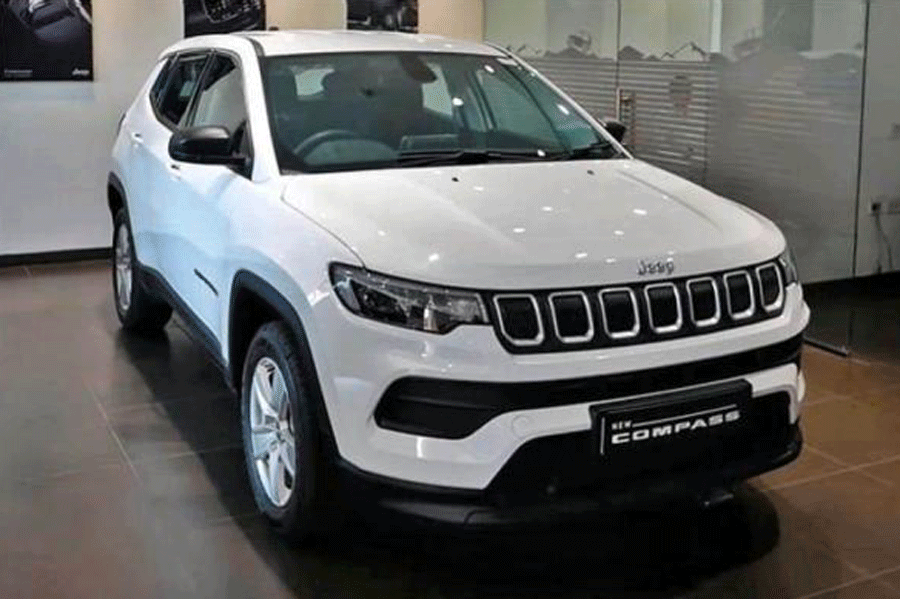Jeep India is trying to stir up demand in the market with a new variant of its C-segment SUV Compass that has been developed exclusively for the Indian market.
It has been a while since the marquee had a launch in India. Jeep sells the Compass, the Meridien, the Wrangler and the Grand Cherokee.
Last year, it sold 13,500 units and this year in the first seven months sales have dipped 50 per cent.
Stellantis, which owns the brand, is trying to revive Jeep’s fortunes by introducing a new diesel powertrain transmission for its largest selling SUV, the Compass.
“The Jeep brand has curated and led the CSUV segment in India since 2017 with industry-best features on the Compass. The all-new Compass with 4X2 9AT caters to the aspirations of customers who always wanted a Jeep vehicle, treating them with several features packed at a much more accessible price point.
“With the new variant range, we will quadruple our operating segment and offer a formidable choice of SUV for the discerning Indian customers,” said Aditya Jairaj, deputy managing director, Stellantis India, and head Jeep India.
Bookings for the 2024 Compass are now open at Jeep dealerships, and on jeep-india.com with prices starting at Rs 20.49 lakh.
Out of the 13,500 units sold in 2022, Compass sold 10,000 units, Meridien, which was launched in the second half of the year, sold 2,500 units, and Wrangler sold 600 units with the rest of the units from Grand Cherokee.
The dip in sales in 2023 is because of Compass selling about 50 per cent less while sales of the other three products have remained the same, said Jairaj.
When asked if the company plans to introduce petrol engines for its vehicles, he said: "We are considering bringing in petrol options."
While the diesel-petrol price difference has dwindled to Rs 13 per litre in the city, and the market has shifted to petrol given stringent regulatory provisions brought about by the government, Jairaj says: "The C segment where the Compass operates is predominantly a diesel segment." Compass with a starting price of Rs 21 lakh competes with the Hyundai Tucson, the upper variants of the Tata Harrier and the Citroen C5.
When asked if Jeep was looking to bring in a product below the Compass, Jairaj said: "We are present in a price band of Rs 21 lakh to Rs 70 lakh and we have four products in that band. So what we need to focus on is maximising our presence in that band. If we look at the Indian market, the Rs 5-10 lakh segment has shrunk and the Rs 10 lakh to Rs 20 lakh segment has expanded. In that price band (Rs 10 lakh to Rs 20 lakh) transaction price has doubled. Customers are willing to and are paying more for value. We are in the minds of customers. We provide customers with a very different value proposition and that comes at a different price point. I won't call us a premium brand. What we need to focus on to showcase our value, then price becomes secondary."
Jeep has a 13 per cent market share in the D segment where Meridien is positioned. The market size of the D-segment is about 3000 vehicles a month. And it is the market leader in the upper C-segment where the Compass operates, said Jairaj.
Stressing the importance of India as a market for Jeep, the new head said: "India is the only country outside the North American region where Jeep builds four nameplates, the Compass, the Meridien, the Wrangler and the Grand Cherokee. We started building the fifth-generation Grand Cherokee in our Ranjangaon plant last year. Grand Cherokee is among the most awarded SUVs in the world. We also started building the Meridien last year. So last year we had two new nameplates and in 2021, we had the refreshed Compass."
In terms of sales, over the last few years, Jairaj said: "Our sales have evolved. We have tremendous opportunities in the C-segment and D-segment. I want to continue to build partnerships and strong communication with our partners, dealers, suppliers and ecosystem. Secondly, build value with customers, and showcase to our customers the value that Jeep brings. The third thing is to continue to listen to our customers and pre-empt their needs and demands."











